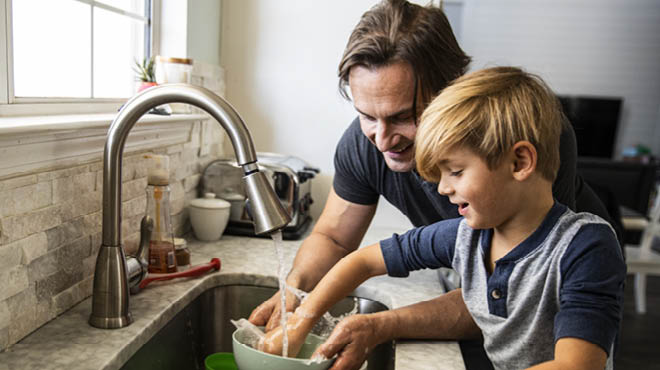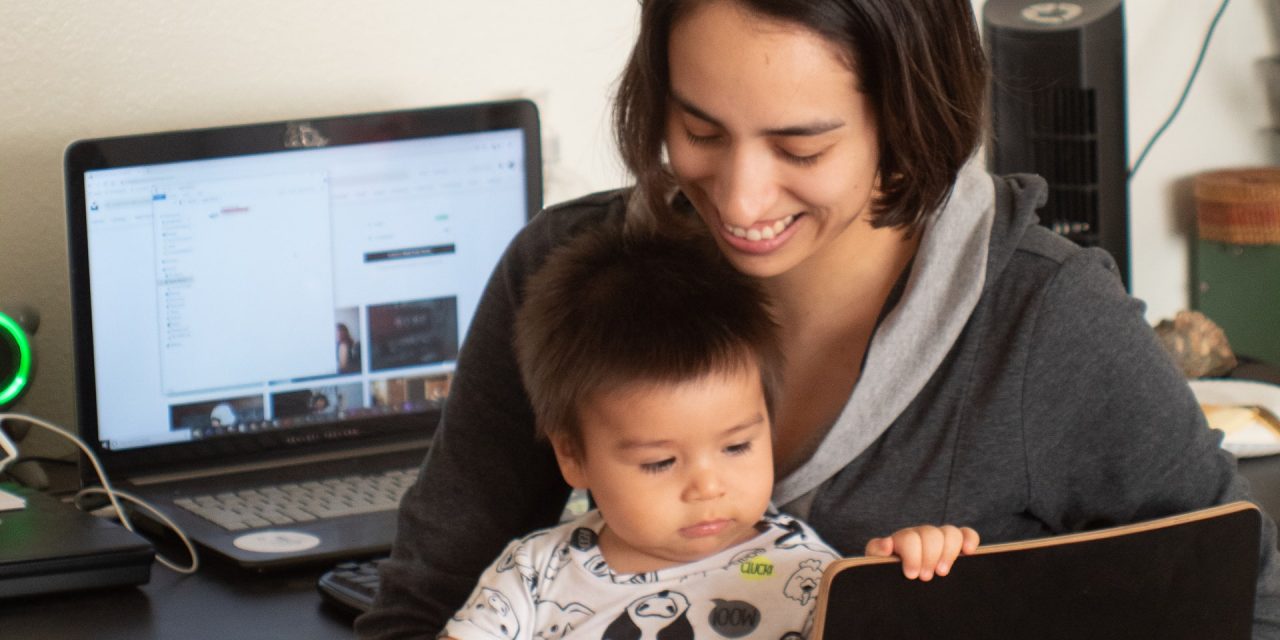Top Tips for Parenting Children With ADHD
Parenting children with ADHD demands understanding behaviors and implementing consistent routines. Engage in effective communication, offer positive reinforcement, and encourage self-care practices. Create clear expectations with positive rewards, use timers, and maintain a structured environment. Active listening and open communication build trust, while simple language aids understanding. Establish a reward system for motivation and track progress with behavior charts. Teach stress management techniques like mindfulness and promote relaxation activities. By focusing on these tips, you can effectively support your child with ADHD.
Key Takeaways
- Set clear expectations with structured routines.
- Use positive reinforcement for good behavior.
- Communicate openly and listen actively.
- Establish a reward system for motivation.
- Encourage stress management and self-care practices.
Understanding ADHD Behaviors

Understanding ADHD behaviors can be demanding but essential for effectively parenting children with ADHD. The symptoms of ADHD, such as hyperactivity, impulsivity, and inattention, can present unique challenges for both the child and the parent. It’s important to recognize that these behaviors aren’t intentional but are a result of neurodevelopmental differences in the brain.
To support your child with ADHD, it’s crucial to implement effective parenting strategies. Providing clear and consistent expectations can help your child understand what’s required of them. Positive reinforcement and rewards for good behavior can also encourage positive habits and improve focus. Additionally, offering a structured environment with minimal distractions can aid in managing symptoms.
Seeking support from healthcare professionals, therapists, and support groups can also be beneficial. These resources can provide you with guidance, coping mechanisms, and a better understanding of your child’s condition.
Building Consistent Routines

Establishing consistent routines is key to providing structure and support for children with ADHD. Time management plays an important role in helping your child navigate daily tasks successfully. By creating a predictable schedule, you can assist them in managing their time effectively, reducing feelings of overwhelm or anxiety. Encourage your child to use tools like timers or alarms to help them stay on track and switch between activities smoothly.
Behavior charts are another helpful tool in building consistent routines for children with ADHD. These visual aids can outline expectations and track progress, offering positive reinforcement for completing tasks or following the schedule. Consistency is vital when using behavior charts, as it helps reinforce good habits and allows your child to see their achievements clearly.
Effective Communication Strategies
To foster positive interactions and strengthen your relationship with your child with ADHD, effective communication strategies are essential. Active listening is a key component in successful communication. When your child is speaking, make sure to give them your full attention, maintain eye contact, and show that you’re engaged in what they’re saying.
Reflecting back what they’ve said can show that you understand and value their perspective. Open communication is another crucial aspect. Encourage your child to express their thoughts and feelings without fear of judgment. Create a safe space where they feel comfortable sharing with you.
Be honest and clear in your own communication, using simple and direct language to convey your messages effectively.
Implementing Positive Reinforcement

To guarantee desired behaviors and strengthen the bond with your child with ADHD, implementing positive reinforcement is a valuable strategy that can yield positive results. Positive reinforcement involves rewarding your child for displaying appropriate behaviors.
Establishing a reward system can be highly effective in motivating your child with ADHD to engage in tasks or behaviors that may be challenging for them.
One way to implement positive reinforcement is by creating behavior charts. Behavior charts visually track your child’s progress and provide a clear understanding of expectations.
When your child meets a specific goal or demonstrates positive behavior, you can reward them with a token, a sticker, or extra privileges. This method helps your child see their progress and encourages them to continue working towards positive outcomes.
Consistency is key when using positive reinforcement. Guarantee that the rewards are meaningful to your child and that they understand the connection between their actions and the rewards they receive.
Encouraging Self-Care Practices

Encouraging your child with ADHD to prioritize self-care practices is vital for their overall well-being and development. Stress management is essential for children with ADHD as they often experience heightened levels of stress and anxiety. Teaching your child mindfulness techniques can help them learn to focus on the present moment, reducing stress and improving their ability to regulate emotions.
To promote stress management, encourage your child to engage in activities they enjoy, such as hobbies or physical exercise. These activities can serve as outlets for pent-up energy and stress. Additionally, establishing a consistent routine that includes time for relaxation and self-care can help your child feel more grounded and in control.
Mindfulness techniques, such as deep breathing exercises or guided imagery, can be effective tools for helping your child manage stress and improve their focus. By incorporating these practices into their daily routine, you can support your child in developing healthy coping mechanisms and promoting overall well-being.
Frequently Asked Questions
How Can I Help My Child With ADHD Make Friends?
To help your child with ADHD make friends, focus on building their social skills. Encourage positive interactions, teach them how to listen, take turns, and show empathy. Practice role-playing scenarios to improve peer relationships and boost their confidence.
What Strategies Can I Use to Manage ADHD Meltdowns?
When managing ADHD meltdowns, focus on coping mechanisms like deep breathing and counting to calm down. Help with emotional regulation by validating feelings. Practice stress management together through relaxation techniques. Redirect behavior positively to encourage self-control.
Are There Specific Activities That Can Help With ADHD Symptoms?
To help with ADHD symptoms, engaging in outdoor exercise like biking or hiking can be beneficial. Additionally, encouraging creative outlets such as art or music can provide a positive and constructive way to manage symptoms.
How Do I Handle Adhd-Related Challenges at School?
When managing ADHD-related challenges at school, make sure school accommodations are in place and communicate with teachers regularly. Collaborate on strategies to support your child’s needs and provide a conducive learning environment for them.
Is It Common for Children With ADHD to Have Sleep Issues?
Yes, it’s common for children with ADHD to experience sleep issues. Establishing good sleep hygiene routines can help. Consider discussing this with your child’s healthcare provider, as they may recommend medication or therapy to improve sleep quality.
Conclusion
Parenting children with ADHD can be challenging, but with understanding, consistency, effective communication, positive reinforcement, and encouragement of self-care practices, you can navigate these difficulties successfully.
Remember to be patient with yourself and your child, seek support from professionals when needed, and celebrate the small victories along the way.
By implementing these top tips, you can create a supportive and nurturing environment for your child to thrive despite their ADHD.

Chad Adan Kace, a young dad from Vermont, shares his parenting journey with a touch of humor and lots of love. Father to a lively baby, he explores the joys and challenges of fatherhood through his stories.







